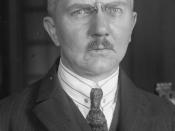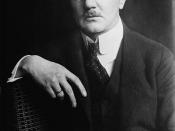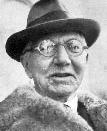I believe that in every thousand of born children we can always find a few with outstanding abilities. They can be potential Einstein, Beethoven or madam Curie, but maybe only a very small percentage of them really will be. The World wastes most of the born geniuses because they won't have their chances. I write about Hjalmar Schacht because I think that he was outstanding, but he had only a partial chance to show his ability. He was in a situation when his capacity only for few years was useful. Hjalmar Schacht disallowed to agree to the Nazis and he was taken into custody. He could have been found guilty and sentenced to death because of his rebelliousness. On other hand, because of his noncompliance to the Nazis, Hjalmar Schacht was exonerated in the Nuremberg Trials.
The Second World War was a catastrophic event that directly influenced millions of people.
By contrast, the Nuremberg Trials (1945-1949), which approved justice for the victims of Nazi war crimes, had a extreme effect upon history but involved only a small number of direct nominees. Although the trials were shown on newsreels and of actual past events in the papers and on radio, for many they remained a distant affair to a society absorbed with rebuilding crushed lives, communities, and economies. From November 20, 1945, until October 1, 1946, the International Military Tribunal (IMT) convened in the principal courtroom for criminal cases (room No. 600) in the Nuremberg Palace of Justice. At the conferences in Moscow (1943), Teheran (1943), Jalta (1945) and Potsdam (1945), the Big Three powers (USA, USSR and Great Britain) had agreed to try and to penalize those responsible for war crimes. Designated by President Harry S. Truman as U.S. legislator and chief counsel at the IMT Supreme Court Justice...


